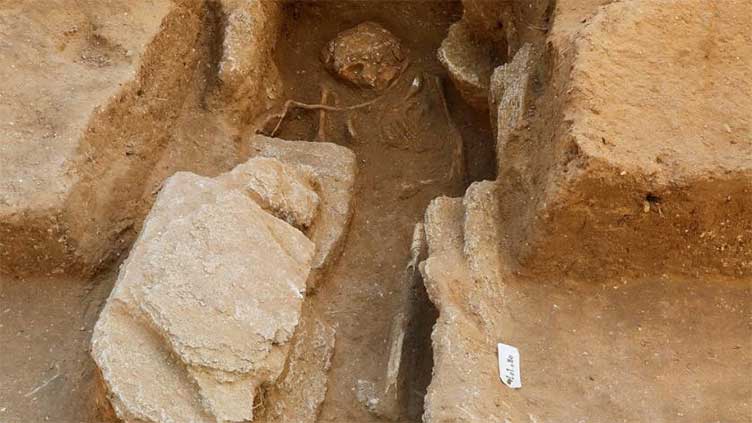Roman-era sarcophagus uncovered in Gaza

Roman-era sarcophagus uncovered in Gaza
GAZA (Reuters) - A Roman-era sarcophagus, likely to have belonged to a prominent individual, was uncovered at the site of a 2,000-year-old Roman cemetery discovered last year in the northern Gaza Strip, the territory's antiquities ministry said on Tuesday.
So far, 90 individual and mass graves have been found at the site, supervised by a French team of experts and uncovered last year by construction workers on an Egyptian-funded housing project.
The ministry said in a statement it believed the sarcophagus, made from lead, belonged to a high-profile figure from the era but added it had not yet been opened. It had been put in a protective wooden container and would be subject to further study by Palestinian and international expert teams.
Ministry spokesman Tareq Al-Af said opening the sarcophagus would await the arrival of an international metal expert. He said some clay jars and other belongings found in the cemetery pointed to the Roman era, around 2,000 years ago.
Af said the cemetery in northern Gaza was located at the site of the old seaport from the Greek and Roman era.
Gaza is rich with antiquities having been an important trading spot for many civilisations, from as far back as the ancient Egyptians and the Philistines depicted in the Bible, through the Roman Empire and the crusades.
Ruins discovered there include the remains of a siege by Alexander the Great as well as a Mongol invasion.
Gaza is run by the Palestinian Islamist group Hamas, which has fought four wars with Israel since 2008.
The conflict has crippled the local economy and authorities usually engage international groups to help excavate and preserve archaeological findings.

